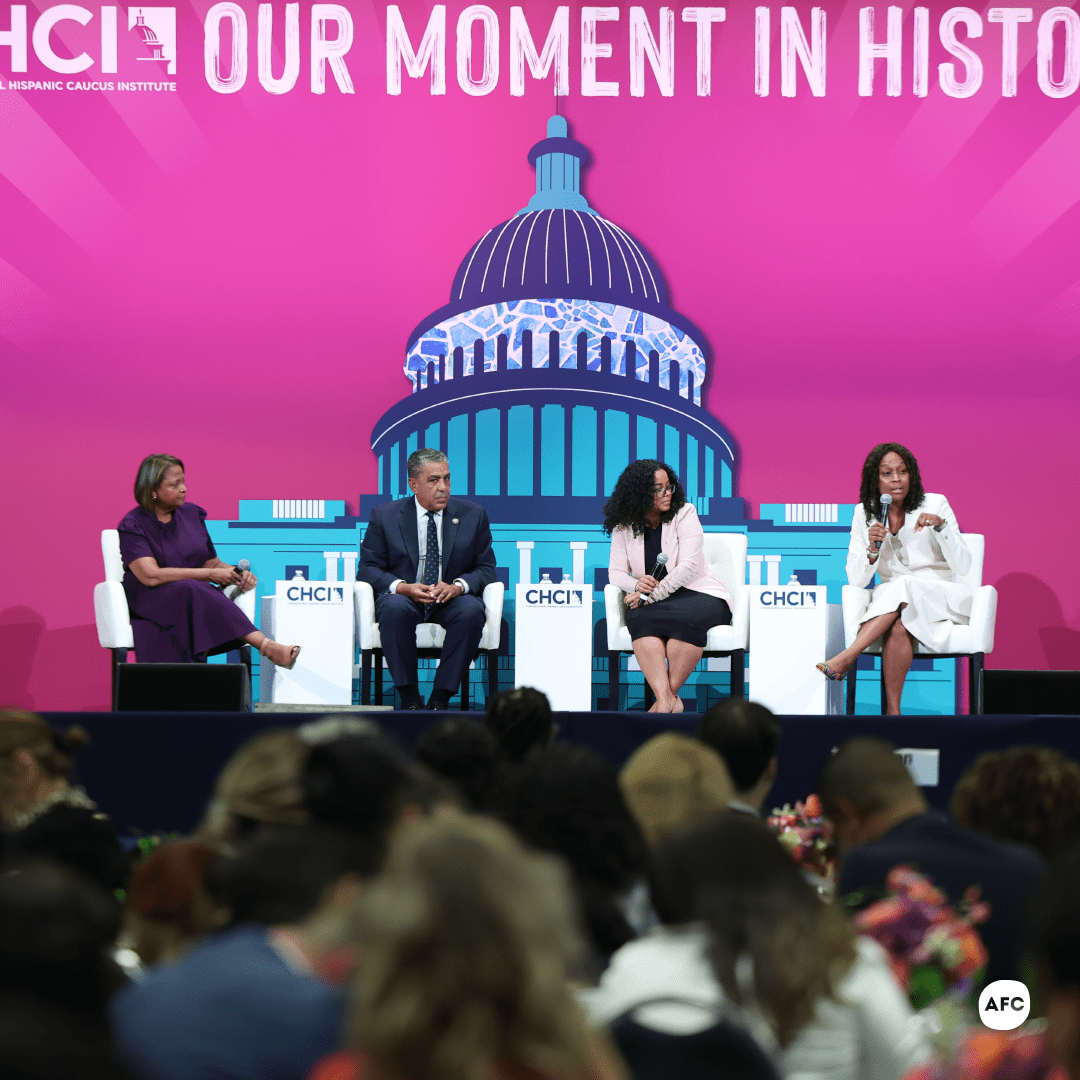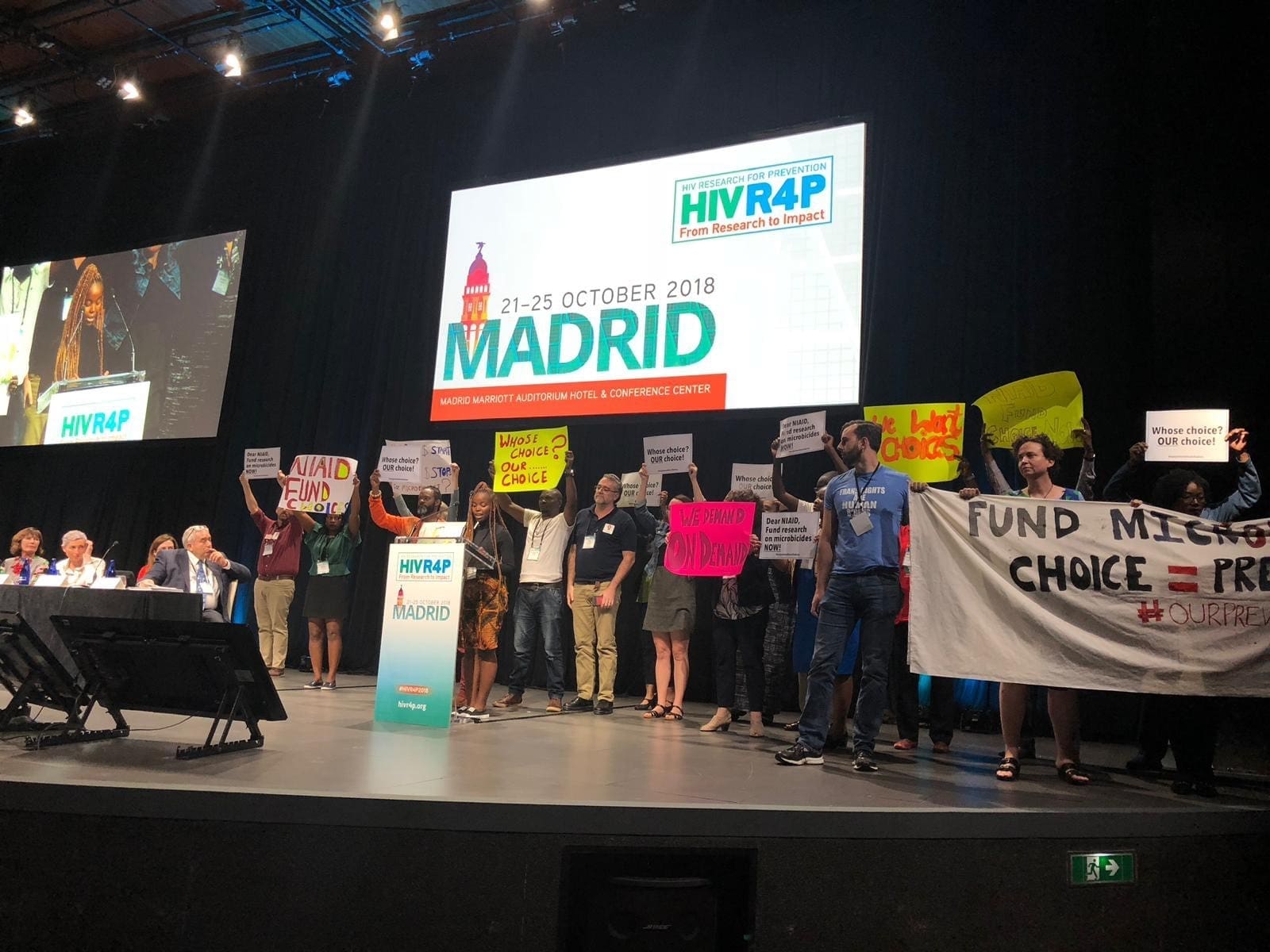I attended this year’s Congressional Hispanic Caucus Institute (CHCI) Hispanic Heritage Month Leadership Conference alongside my AFC Colleague, Dominique Chew. This was my first time attending this event since the start of the COVID-19 pandemic and I was SO excited to reconnect with old friends and colleagues. For those who aren’t familiar with CHCI’s Hispanic Heritage Month programming, this annual event and associated gala are the highlight of the year for us Latinx policy nerds. In fact, in D.C. we refer to the gala as Latino prom.
The leadership conference is an opportunity for thousands of Latinx leaders from all over the U.S. to come together to learn about and discuss the major policy issues facing our communities, for us to elevate these issues to federal lawmakers and administration officials, and for several days, we are immersed entirely in all things Latinidad.
The theme this year was “Our Moment in History.” Sessions ranged from such themes as “The Power of the Latino Vote,” “From Island to Mainland: The Vital Impact of Puerto Rico’s Small Businesses on the U.S. Economy,” to more intimate conversations with the four Latinx Presidential cabinet members (the most we’ve ever had at one time), as well as with Vice President Kamala Harris. However, none was more enticing to me than the session entitled “Strong, Healthy Latino Communities: Addressing Chronic Health and Autoimmune Issues.” Given the disproportionate impact of the HIV epidemic on the Latinx community, surely this session would touch on that topic. If not this session, perhaps it might be mentioned at some point during this conference.
Imagine my complete and utter surprise when that moment never came. You can trace my involvement in the HIV field all the way back to my high school years when I started volunteering for community organizations that provided testing, education and support services for people impacted by HIV. At this point, I’ve known for well over half of my life the outsized impact the HIV epidemic has had on the Latinx community—a point of discussion that is gaining ever more attention within the larger HIV field as we work to end the HIV epidemic by the year 2030. Yet, the topic was nowhere to be found throughout this major Latinx policy conference.
All the policy issues facing the Latinx community converge to determine our predisposition for HIV. Access (or lack thereof) to economic stability, quality education, familial and social support systems, health care, housing and our interactions with the criminal justice system can determine whether we remain HIV negative or not. When Latinx people become HIV positive, a fundamentally life-altering event, they are thrown into a world of mandatory medical care from a system not designed to best serve our people, the mind-numbing bureaucracy of the HIV safety net, and the profound stigma still embedded in the Latinx social fabric.
According to the 2020 U.S. Census, the Latinx community accounted for 18.77% of the U.S. population. According to the Centers for Disease Control and Prevention (CDC), in 2019 the Latinx community made up 29% of all new HIV diagnoses in the U.S. and accounted for 25% of all people living with HIV. Pre-Exposure Prophylaxis (PrEP), a highly effective medication for HIV prevention, has been approved by the Food and Drug Administration (FDA) for that purpose since 2012 and yet, by the CDC’s own estimate, only 14% of Latinx people who could benefit from it were prescribed PrEP in 2019. The Latinx community must contend with social and structural racism, xenophobia, language barriers, medical mistrust, and lack of access to quality and culturally competent health care, all of which continue to drive the disproportionate rate of HIV transmission amongst Latinx people.
Realizing that HIV would not be acknowledged at the conference, I made it my mission to bring it up as much as I could during the sessions I attended. At best, I was met with blank stares and half answers from the panelists, and at worst I was outright told by one panelist that HIV is a niche issue that should be discussed in other spaces. I disagree. HIV is not a niche issue. HIV is a life-changing outcome when structural and societal barriers converge, which allow a condition which has been highly preventable for over a decade to continue to disproportionally impact us.
At a time when the U.S. House of Representatives is proposing to slash over $747 million in domestic HIV programs, threatening to undo the progress we have made to end the HIV epidemic in the U.S. in our lifetime, now more than ever, we need to bring this issue to the forefront. Even within the larger HIV field, the Latinx community is treated like a monolith and discussions about the impact of HIV on our community feel almost like an afterthought. This isn’t all too surprising given the disproportionate representation of White individuals in the field, but why, then, aren’t we as national Latinx policy leaders talking more about it? If you’d like to get involved in our advocacy work, sign up through our Mobile Action Center to receive alerts whenever we have an opportunity for action, or reach out to me directly at [email protected] for more information.


